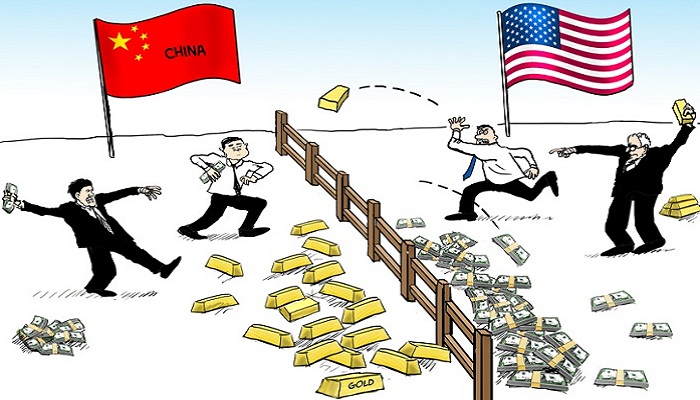Indonesia to Cut CPO Export Tariffs by 5% in Response to U.S. Trade Pressures
JAKARTA, RAKYAT NEWS – Indonesia is taking decisive action to address the increasing pressure from the U.S. import tariffs, which have reached as high as 32%. In response, the Indonesian government will reduce the export tariff on crude palm oil (CPO) by up to 5%. This decision, announced by Finance Minister Sri Mulyani Indrawati, aims to ease the burden on local producers and maintain the competitiveness of Indonesia’s palm oil exports in the global market.
The U.S. has imposed steep tariffs on Indonesian goods, including palm oil, significantly affecting the country’s agricultural exports. As a result, Indonesia currently levies an export fee on CPO, which can reach as much as US$288 per ton, depending on the price reference. These high tariffs have created challenges for Indonesian producers, especially with the increasing global competition in the palm oil sector.
To alleviate this situation, the Indonesian government will adjust the export duties on CPO, with reductions ranging from 0% to 25%. Minister Sri Mulyani stated that the adjustment would result in a tariff reduction equivalent to 5%, a step aimed at making Indonesian exports more competitive against the backdrop of increasing global trade barriers.
In addition to adjusting export tariffs, the government will speed up the implementation of anti-dumping duties and safeguard measures for palm oil products. These measures are designed to protect Indonesia’s CPO exports from unfair trading practices in the international market. The government plans to expedite the application of these measures, reducing the process time to just 15 days, thus providing more timely protection for local industries.
This move is part of a broader effort to reduce the overall tariff burden on Indonesian businesses. The government will also introduce administrative reforms in taxation and customs, which are expected to cut an additional 2% from the tariff burden. These reforms will simplify procedures and reduce the costs of compliance, easing the impact of tariffs on businesses.
Moreover, the government plans to lower the import income tax (PPh) on imported goods from 2.5% to 0.5%. This adjustment is expected to lower the additional tariff burden by another 2%, helping to further reduce the financial strain on companies affected by the U.S. tariffs.
In a further move to balance trade relations, the government will also adjust the import duties on products from the U.S. that fall under the Most Favored Nation (MFN) category. These products, which currently face import tariffs ranging from 5% to 10%, will see a reduction to between 0% and 5%, further reducing costs for U.S. imports.
Sri Mulyani emphasized that these steps are part of a comprehensive strategy to protect Indonesian exports and businesses while navigating a challenging global trade environment. The government is committed to ensuring that Indonesian industries remain resilient in the face of external pressures, especially with the ongoing trade tariff war involving major global economies.
These tariff adjustments and reforms mark a significant shift in Indonesia’s trade policy as the government works to bolster its economy in the face of mounting international trade challenges. With these new measures, Indonesia hopes to shield its key industries, including the palm oil sector, from the negative impacts of rising global trade barriers. (Uki Ruknuddin)


Tinggalkan Balasan Batalkan balasan